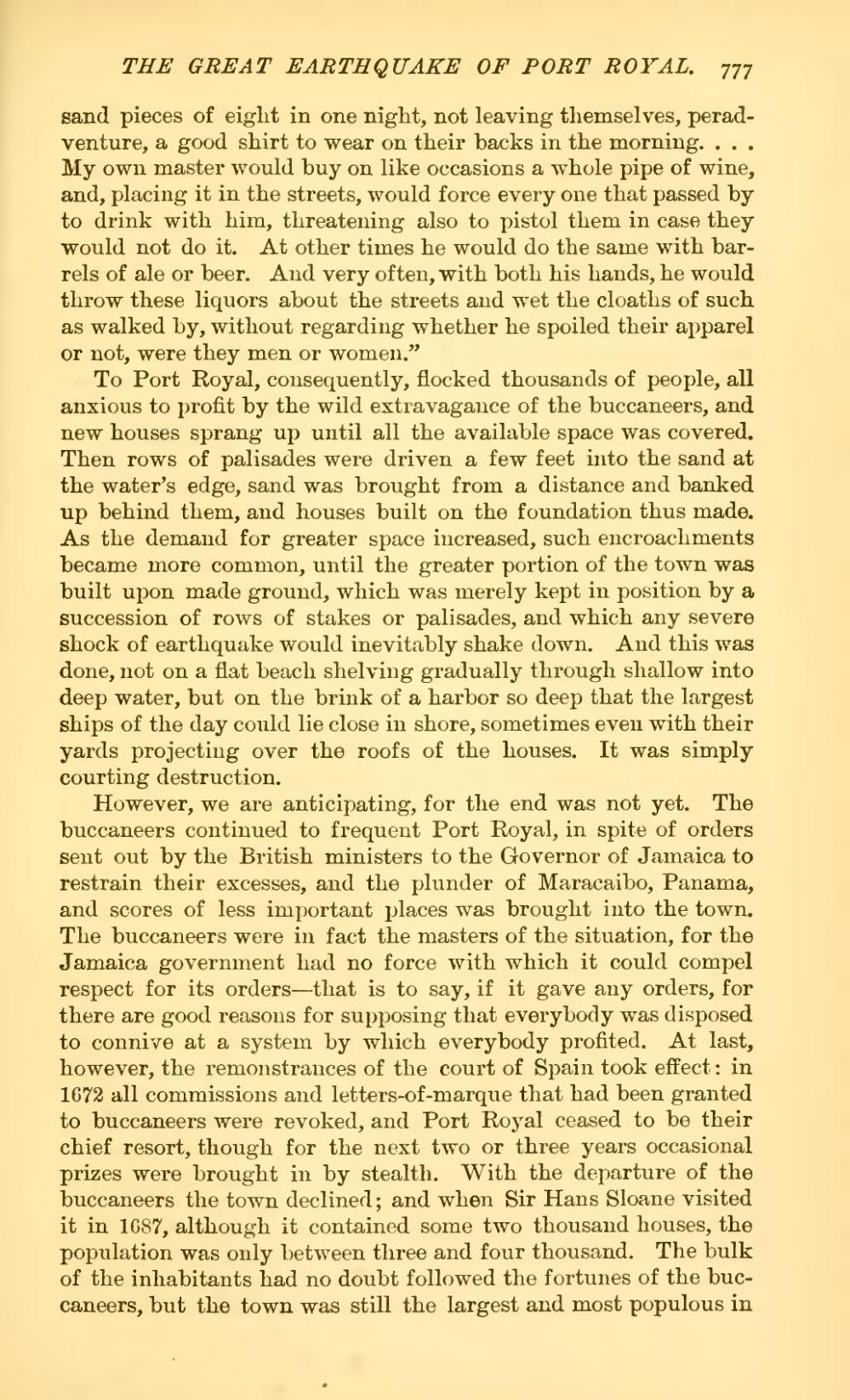sand pieces of eight in one night, not leaving themselves, peradventure, a good shirt to wear on their backs in the morning. . . . My own master would buy on like occasions a whole pipe of wine, and, placing it in the streets, would force every one that passed by to drink with him, threatening also to pistol them in case they would not do it. At other times he would do the same with barrels of ale or beer. And very often, with both his hands, he would throw these liquors about the streets and wet the cloaths of such as walked by, without regarding whether he spoiled their apparel or not, were they men or women."
To Port Royal, consequently, flocked thousands of people, all anxious to profit by the wild extravagance of the buccaneers, and new houses sprang up until all the available space was covered. Then rows of palisades were driven a few feet into the sand at the water's edge, sand was brought from a distance and banked up behind them, and houses built on the foundation thus made. As the demand for greater space increased, such encroachments became more common, until the greater portion of the town was built upon made ground, which was merely kept in position by a succession of rows of stakes or palisades, and which any severe shock of earthquake would inevitably shake down. And this was done, not on a flat beach shelving gradually through shallow into deep water, but on the brink of a harbor so deep that the largest ships of the day could lie close in shore, sometimes even with their yards projecting over the roofs of the houses. It was simply courting destruction.
However, we are anticipating, for the end was not yet. The buccaneers continued to frequent Port Royal, in spite of orders sent out by the British ministers to the Governor of Jamaica to restrain their excesses, and the plunder of Maracaibo, Panama, and scores of less important places was brought into the town. The buccaneers were in fact the masters of the situation, for the Jamaica government had no force with which it could compel respect for its orders—that is to say, if it gave any orders, for there are good reasons for supposing that everybody was disposed to connive at a system by which everybody profited. At last, however, the remonstrances of the court of Spain took effect: in 1672 all commissions and letters-of-marque that had been granted to buccaneers were revoked, and Port Royal ceased to be their chief resort, though for the next two or three years occasional prizes were brought in by stealth. With the departure of the buccaneers the town declined; and when Sir Hans Sloane visited it in 1687, although it contained some two thousand houses, the population was only between three and four thousand. The bulk of the inhabitants had no doubt followed the fortunes of the buccaneers, but the town was still the largest and most populous in
